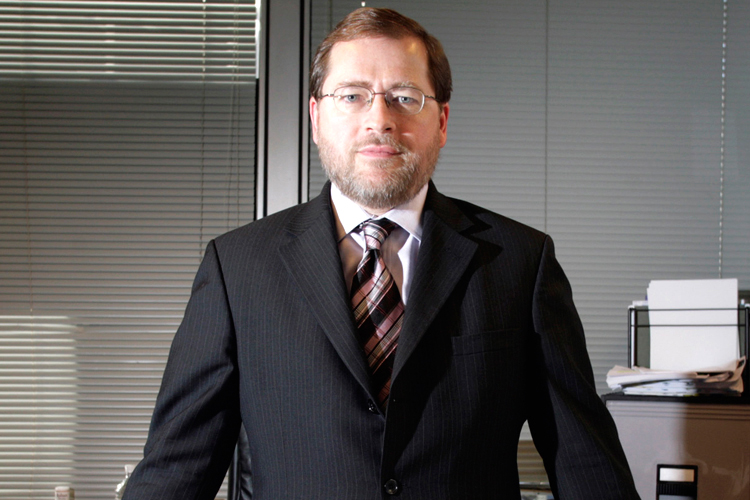Another year, another serious funding gap in the Highway Trust Fund that members of Congress will spend a lot of time talking about fixing before throwing a bunch of cash at it as a temporary “patch.” Or will this be the Congress when they resolve this problem once and for all? It’s always wiser to put money on contemporary Congresses not resolving any problem once and for all.
But lately there have been surprisingly positive murmurs coming from some — but not all — corners of the GOP.
The federal Highway Trust Fund is funded through an 18.4-cent tax on gas and a slightly higher tax on diesel. It hasn’t been raised since 1993. In the 22 years since, cars have become more fuel-efficient while roads have remained… roads. These are the things from which structural funding gaps are born! At the present, transportation expenditures clock in at about $50 billion per year, with revenue from the gas taxes lagging behind at about $34 billion.
The obvious solution to this shortfall is increasing the gas tax. You know? There are all of these infrastructure projects and there are not enough funds for them, so you increase the funds for them via their specific levy. The problem with increasing the gas tax, though, is that “increase the gas tax” is not a popular political phrase. Republicans obviously hate it and even some Democrats — including the one occupying the White House — have kept their distance from it.
But the recent collapse in gas prices may have opened a political window for increasing the tax before the fund runs out of money again in May. Sens. Chris Coons and Bob Corker, a Democrat and a Republican respectively, are pushing a proposal to increase the gas tax 12 cents over the next two years. The #2 Senate Democrat, Dick Durbin, is on board. Nancy Pelosi has voiced her support for increasing the tax. Speaker John Boehner didn’t sound especially enthused about the prospect but didn’t fully rule it out either. And the country’s top conservative columnist, Charles Krauthammer, has just written a column titled “Raise the gas tax. A lot.”
The most important figures suddenly warming to a gas tax increase, though, are Sens. Orrin Hatch and Jim Inhofe, heads of the two respective Senate committees charged with figuring this thing out.
Yet in recent days, senior Senate Republicans have said they want to keep options open and that “nothing is off the table” when weighing the best mechanisms to pay to finance infrastructure projects.
“I just think that option is there, it’s clearly one of the options,” said Sen. Inhofe (R-Okla.), new chairman of the Senate Committee on Environment and Public Works.
Senate Finance Chairman Orrin Hatch (R-Utah) and Sen. John Thune (R-S.D.), the third-ranking Senate Republican, also said they were open to the possibility of raising the tax.
Inhofe is an comically right-wing Republican, so it’s no small thing for him to keep this on the table. And what’s his plan for selling a possible tax increase to his fellow Republicans? It’s an old favorite of Republicans, frequently employed by GOP governors who need to balance their budgets: relabeling a tax a “fee.” Inhofe, according to The Hill, considers “user fee” a more apt term than “gas tax.”
There’s something to that. If you want to use the roads, you have to pay a “fee” to provide for their maintenance. But “roads” are a bit of a bigger operation than some niche government office to which a narrow segment might have to cough up. When tens or hundreds of millions of people have to pay a “fee” as an unavoidable part of their life, “tax” is not an unreasonable term. In other words: the people who are likely to get angry about this will not be persuaded by a shift in terminology.
One person who’s definitely not likely to be persuaded by this is GOP anti-tax pledgemaster Grover Norquist. You’ve got to love how this piece in The Hill straight-up says — not inaccurately — that Republican members of Congress will need Norquist’s permission to consider doing such a thing.
Inhofe argues lawmakers “don’t have a choice” but to consider raising the gas tax, which he says is more accurately called a “user fee” — a characterization the founder of the conservative Americans for Tax Reform, Grover Norquist, has yet to sign off on.
And it doesn’t look like Norquist will “sign off” on Inhofe’s wordplay anytime soon, given how he categorically rejected it on Twitter this morning. Norquist argues, instead, that transportation funds are misallocated to extraneous transit systems and the wages of federal contract workers.
[embedtweet id=”553578449160269824″]
Again, if you’re making bets, “The new Republican Congress will not raise the gas tax for the first time in decades” is the safer side to take.

